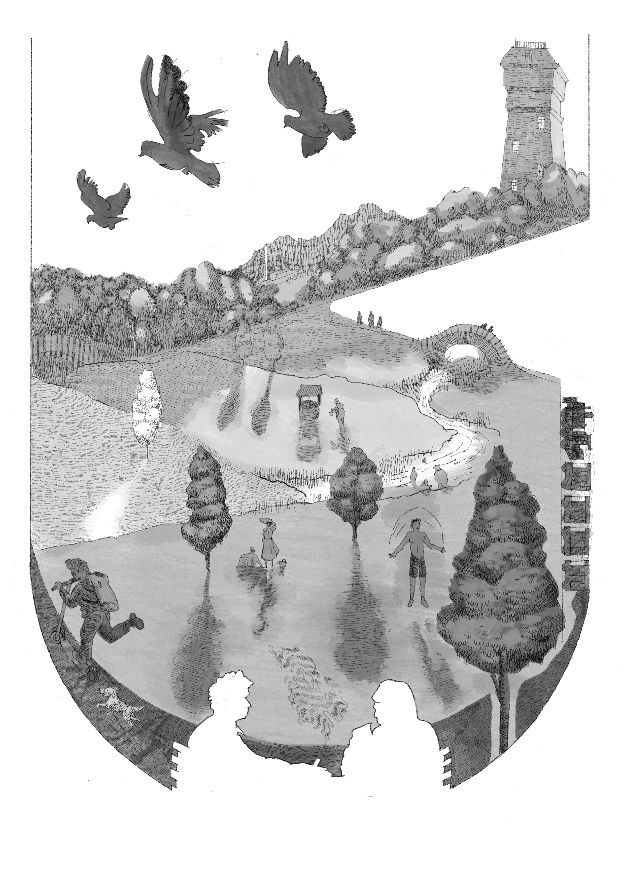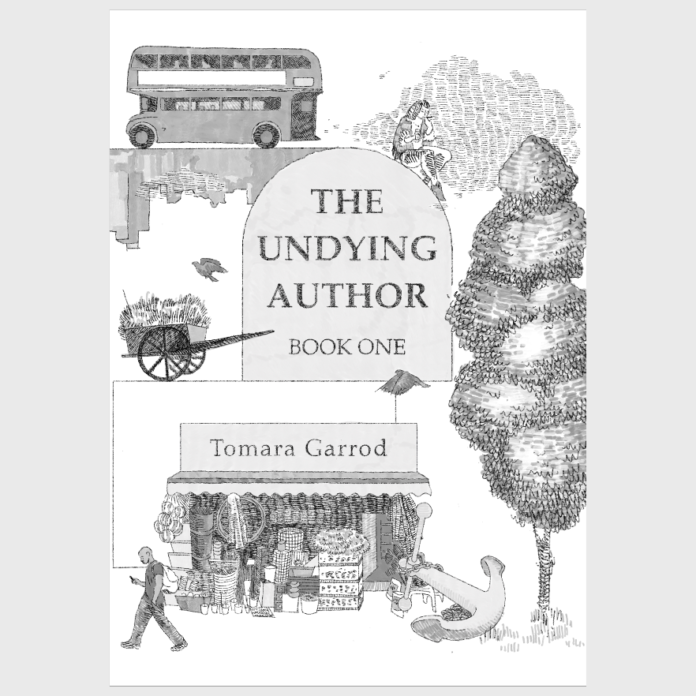Historian and author Tomara Garrod’s first book, The Undying Author, is a novella about a Harry Potter fan journeying to confront JK Rowling, in the aftermath of Rowling’s infamous June 2020 essay setting out her transphobic views. Vic Parsons writes;
In an interview for Trans Writes Tomara spoke about how trans history informs their work, bringing ‘separating the art from the artist’ theories alive through fiction, and rebuilding a complicated relationship with Harry Potter. The book launches today (Oct 15th) with an event being held at The Common Press Bookshop in London.
Vic: Can you tell Trans Writes readers what The Undying Author is about?
Tomara: Trans history, trans erasure, and what trans people can do in the face of the ever-present debate surrounding our life.
The protagonist is a person called Jess, who is a huge fan of Harry Potter. They are super devastated when JK Rowling starts with her transphobic nonsense and then they find all their Harry Potter books have been erased – they’ve been exiled from the Harry Potter world. The book is them wrestling with and deciding what to do with that. Jess gets some advice from their friend [French philosopher] Roland Barthes, who tells them to go and find JK Rowling, and face her.
Vic: Why does Roland Barthes play a character in The Undying Author?
Tomara: A lot of the discourse around JK Rowling, and other artists who start being sexist or racist or so on, contains the idea of the death of the author. Roland Barthes gets referenced a lot. I think sometimes this can mean that we deal with these ideas in very intellectual ways. This book wants to animate the conundrum of your favourite childhood author turning against you. I wanted to tell that story in personal, everyday detail – I wanted to bring Barthes’s ideas to life. And what better way to do that than through him as a character? I want to let trans people be in conversation with different ways of reacting to our situation.
Vic: How did you come up with the idea for the story in The Undying Author?
Tomara: In the winter of the first lockdown, so 2021, I hadn’t written anything for nine months. And literally the idea came at two in the morning. I was half asleep, I woke up feverishly and I sketched out this idea.
Vic: Were you a Harry Potter fan growing up?
Tomara: I was a huge Harry Potter fan. I was also, much like Jess, into fanfiction. I’d been properly done with Harry Potter for a while – I got bored of it and moved on to other things – when JK Rowling started popping back up. It was weird, dissonant, like I thought I’d put this to bed and then it was coming back at me in this poisonous way.
Vic: So is The Undying Author your personal response to JK Rowling?
Tomara: Like a lot of writing and particularly first books, there’s some semi-autobiographical stuff in here. Harry Potter was such an important part of me growing up. I can’t just divorce that, I have to work out a new relationship with it. Jess is my way of trying to ask the questions of how or can I build a better relationship with Harry Potter.

Vic: You grew up in Lewisham, where The Undying Author is set. Could you talk about the significance of time and place in your writing?
Tomara: One of the strange things about still living in the borough that you were born in, especially when transitioning, is you have all these different pasts that face you. You walk down a street and suddenly you’re struck with this memory of a specific thing that happened 15 years ago. For me this mirrors the Harry Potter problem – something that was a big part of my past coming back with this haunting presence.
One thing I really like about the book is to have history clashing and being messy and all over the place. This is what it feels like to me to be trans right now. I wanted to write Lewisham in this jumbled way. For me, it’s a way of expressing that reality of being trans, the confusing state of living in such an erased way.
And then, there’s obviously ‘trans history’ as two separate words. There’s also the word ‘transhistorical’, meaning something that stretches across time. When I dig into my trancestors, who accompany me today to help me survive or resist the erasure that’s around me, in some ways that’s a transhistorical way of being. It’s like inviting the past into my present and living alongside dead people. I think this book touches a lot on this. What does death mean? How do we live beyond death? Who really gets to live? Who gets to be real? Once you start thinking in those terms, it totally fucks up what time it is.
Vic: What was it like writing a book about JK Rowling as a trans person?
Tomara: It feels important, it feels scary, sometimes it feels cringe. Me and the publishers are taking on quite significant legal risk. But I’ve always written with the things that surround me: ideas, music, people, political events. Those are my building blocks. So in some ways it felt really natural, because here was this person who was getting more and more attention and taking up an unnecessary and abnormal amount of space in my life. There are bits where Jess has really dark moments, moments of complete dissociation and stuff. That was really challenging to write and to go through those experiences, do that kind of digging. But I think that’s the process of any writer when they write with difficult life stuff that also implicates them. It’s part of the job, I think.
The Undying Author is out on 15 October and available to buy from Second Spine here.











